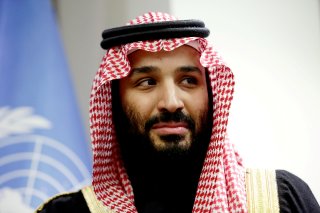Saudi Arabia Is Its Own Worst Enemy
At present Riyadh is challenged by three simultaneous existential threats. Managing through any one of these would be difficult for most leaders. Confronting all three of them together would test even statesmen with decades of experience.
There is a pattern here. Legitimate strategic concerns emerge, but they lead to impulsive decisions and then unwise actions. Domestic advisors who know better are not consulted; foreign allies who could propose alternatives are left in the dark. The effort predictably backfires and, in the end, undermines Saudi Arabia’s deeper strategic interests. Reform suffers another setback. Iran comes out ahead. And now, in the wake of this latest crisis, questions are being raised again within the royal family about the future of the still unfinished leadership transition. All three existential threats to the future of the kingdom have increased demonstrably over the past year.
Saudi Arabia needs to break this pattern, sooner rather than later, whether that means a different set of top advisors, a different way of making decisions—or a different crown prince. That is an internal decision for Saudi Arabia, one that the United States has little influence over even though much is at stake.
The murder of Khashoggi was a crime for which all those responsible should be held accountable. And it was also a mistake—for which the consequences may eventually turn out to be even more severe.
William F. Wechsler leads the Atlantic Council’s Middle East programs. He was previously deputy assistant secretary of defense for Special Operations and Combating Terrorism.

